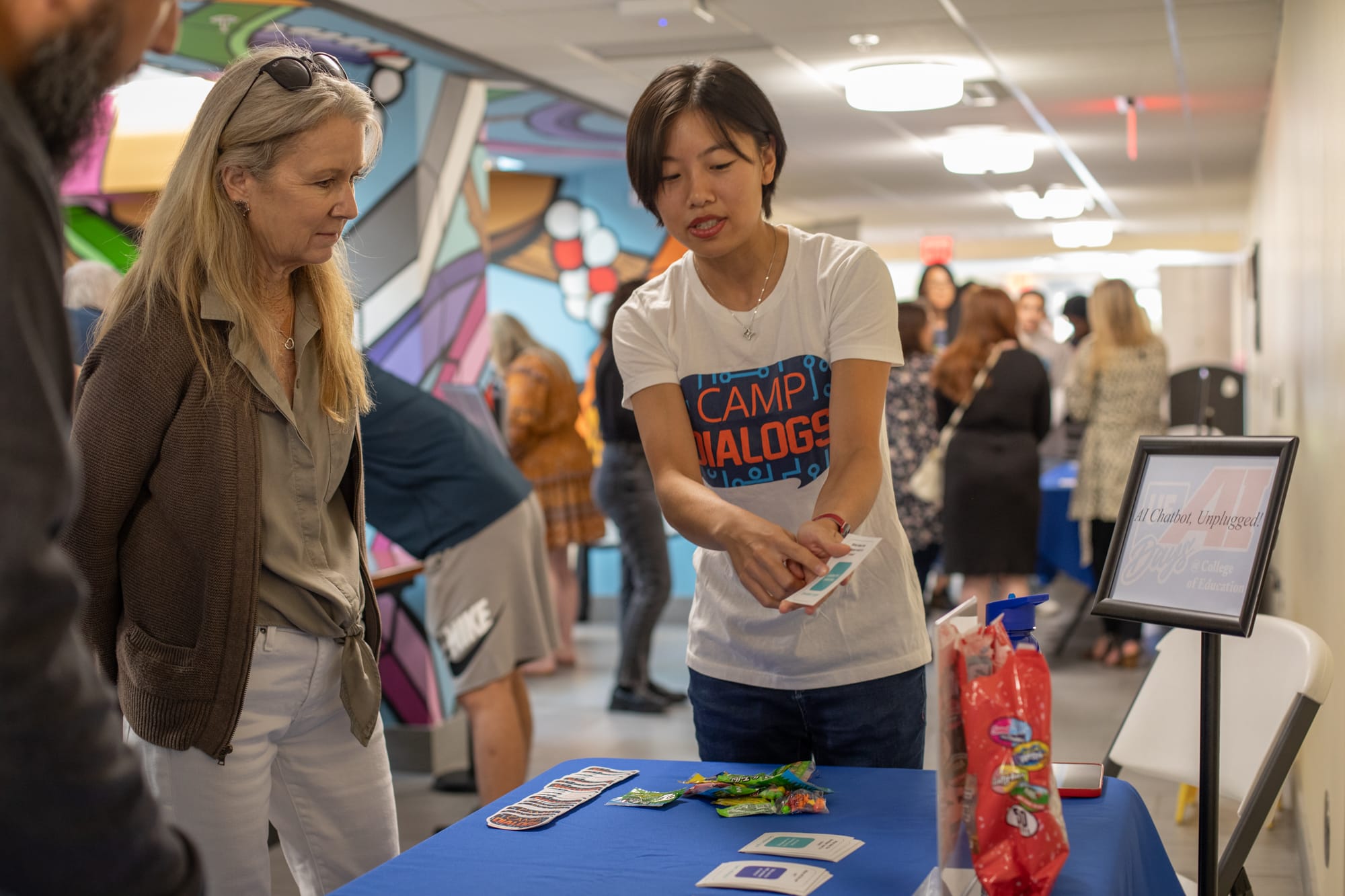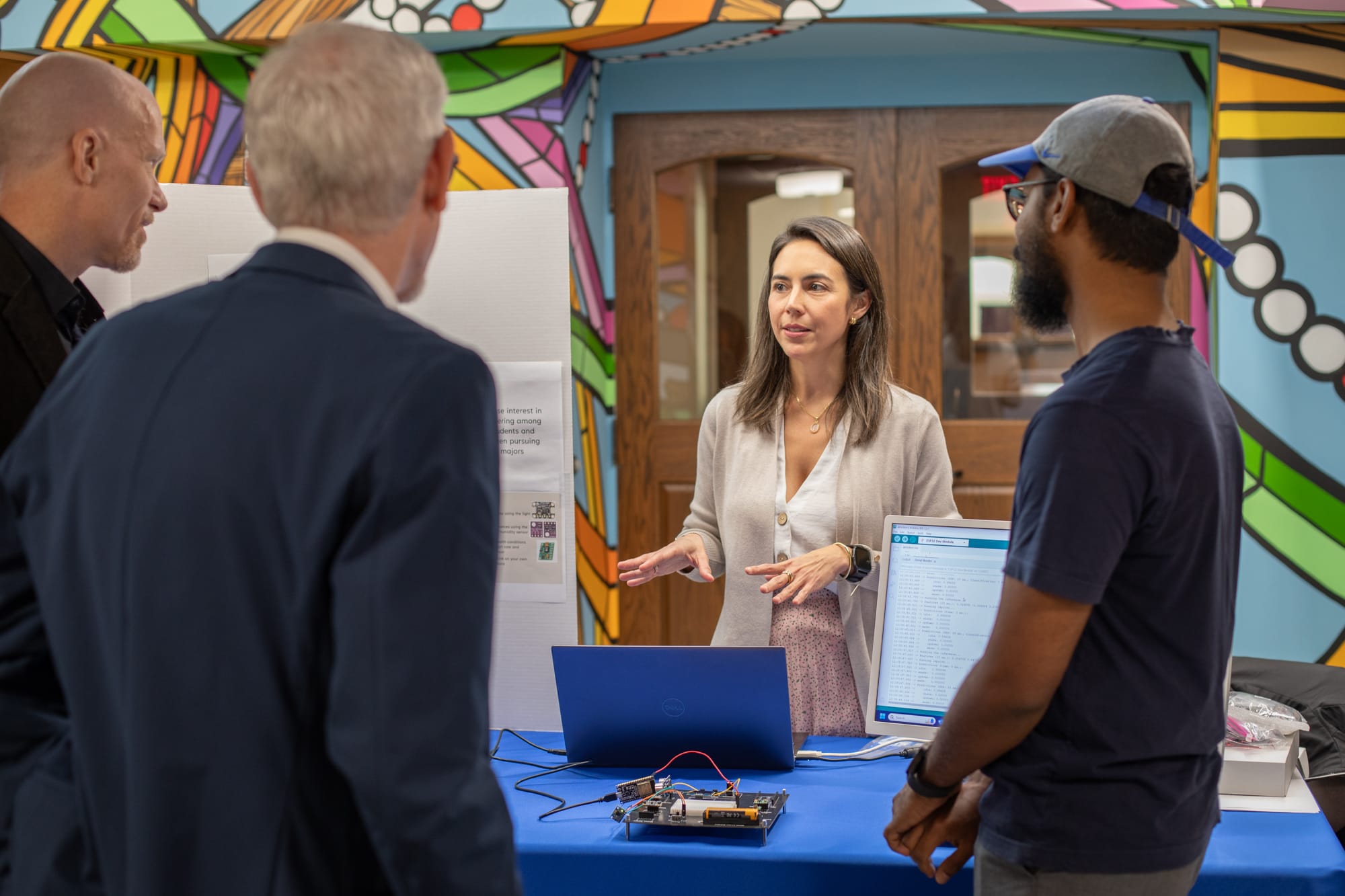Call for Book Chapter Proposals
We invite scholars, educators, researchers, policymakers, and industry professionals to submit chapter proposals for Mapping the Landscape of STEM Microcredentials: Frameworks, Applications, and Future Directions to appear as an edited volume in the Educational Communications and Technology: Issues and Innovations book series.
About the Book
This edited volume will assemble leading experts to comprehensively map the STEM microcredential landscape for the first time. Microcredentials are digital certifications that demonstrate professional learning or competency through rigorous assessment. They offer specialized, focused content that is less time-consuming and less expensive than formal degrees, making them widely accessible—especially to underrepresented or disadvantaged groups (Boyer & Griffith, 2023; Clausen, 2022; McGreal & Olcott, 2022; Moore, 2022).
Unlike short-form digital courses that merely provide content and award a digital badge upon completion without verifying mastery, microcredentials require learners to demonstrate competency through rigorous assessment. This distinction is crucial, as microcredentials validate participation, actual skill acquisition, and proficiency.
STEM microcredentials are of specific interest because they offer flexible and targeted educational approaches often lacking in traditional degree programs (Maina et al., 2022; Moore, 2022; Tamoliune et al., 2023; Woods & Woods, 2021). In rapidly evolving STEM fields, where new technologies and methodologies emerge frequently, microcredentials provide specific, skills-based education that can be acquired and applied quickly. This meets the needs of a dynamic job market that demands up-to-date competencies (Boyer & Griffith, 2023; Smith & Fong, 2023).
In the context of higher education, microcredentials offer an alternative pathway, allowing students to gain specific skills and knowledge directly relevant to their career goals. This approach not only enhances employability but also supports lifelong learning. Microcredentials can be integrated into workforce development initiatives, providing employees with opportunities to upskill or reskill in response to new job requirements. Earning and displaying these credentials can significantly impact career progression and job satisfaction (Ashcroft et al., 2021; Gallagher, 2019; Oliver, 2019).
Major Contributions:
- A comprehensive mapping of the STEM microcredential landscape.
- In-depth analysis of foundational frameworks.
- Forward-looking perspectives on future opportunities and research directions.
These contributions are crucial for stakeholders leveraging STEM microcredentials to enhance education and workforce development. We invite various scholarly proposals, including conceptual, theoretical, or design chapters, institutional case studies, review studies, and empirical research.
Editors
- Rob Moore | https://education.ufl.edu/faculty/moore-rob/
- moore3@ufl.edu
- University of Florida
- Kent Crippen | https://education.ufl.edu/faculty/crippen-kent/
- kcrippen@coe.ufl.edu
- University of Florida
Target Audience
-
- STEM Educators and curriculum designers.
- Researchers and practitioners in diverse and likely interdisciplinary STEM fields, including medicine and the health sciences.
- Policymakers in education and workforce development.
- Industry professionals engaged in microcredentials development and evaluation.
Proposed Sections
-
- Section 1: Overview of STEM Microcredentials
- Section 2: Foundations and Frameworks
- Section 3: Current Landscape and Applications
- Section 4: Future Directions and Opportunities
Submission Guidelines
Proposal Submission Deadline: December 16, 2024
Submit a proposal using the Book Chapter Proposal Form.
Proposal Requirements
-
- Extended Abstract: Please submit an extended abstract of up to 2 pages that outlines the focus, objectives, methodology, and expected contributions of your proposed chapter. The abstract should clearly define key terms and concepts, explain the relevance to STEM microcredentials, and indicate how your work aligns with the book’s themes. Include key references and up to five keywords that represent the main topics of your chapter.
If authors are invited to complete a full chapter submission, all chapter authors will be requested to peer review at least one other chapter submission. Reviewers will be provided guidelines to complete peer reviews. If authors decide not to participate in the peer review process, the book chapter proposal may no longer be considered for publication.
Final Chapter Requirements:
- Length: Approximately 8,000 – 10,000 words (excluding references).
- Formatting: Adhere to APA 7th edition guidelines.
- Peer Review: Submissions will undergo peer review and editorial review.
Timeline
- Proposals Due: December 16, 2024
- Decisions Sent to Authors: December 20, 2024
- Full Chapter Submissions Due: March 3, 2025
- Peer Reviews Returned to Authors: March 31, 2025
- Revisions Due: April 28, 2025
- Final Acceptance Notifications: May 26, 2025
- Completed Materials from Authors: June 9, 2025
References
Ashcroft, K., Etmanski, B., Fannon, A. M., & Pretti, T. J. (2021). Microcredentials and work-integrated learning. International Journal of Work-Integrated Learning, 22(3), 423–432.
Boyer, N. R., & Griffith, M. L. (2023). Technology enablement of the skills ecosystem. International Journal of Information and Learning Technology. Advance online publication. https://doi.org/10.1108/IJILT-12-2022-0229
Clausen, J. M. (2022). Learning to fly: Development and design of a micro-credentialing system for an educator preparation program in the absence of a required educational technology course. TechTrends, 66(2), 276–286. https://doi.org/10.1007/s11528-021-00673-x
Gallagher, S. (2019). A new era of microcredentials and experiential learning. University World News. https://www.universityworldnews.com/post.php?story=20190213103113978
Maina, M. F., Guàrdia Ortiz, L., Mancini, F., & Martinez Melo, M. (2022). A micro-credentialing methodology for improved recognition of HE employability skills. International Journal of Educational Technology in Higher Education, 19(1). https://doi.org/10.1186/s41239-021-00315-5
McGreal, R., & Olcott, D. (2022). A strategic reset: micro-credentials for higher education leaders. Smart Learning Environments, 9(1), 9. https://doi.org/10.1186/s40561-022-00190-1
Moore, R. L. (2022). Introducing mesocredentials: Connecting MOOC achievement with academic credit. Distance Education, 43(2), 271–289. https://doi.org/10.1080/01587919.2022.2064823
Oliver, B. (2019). Making micro-credentials work for learners, employers and providers. https://dteach.deakin.edu.au/wp-content/uploads/sites/103/2019/08/Making-micro-credentials-work-Oliver-Deakin-2019-full-report.pdf
Smith, A., & Fong, J. (2023). Disengaged Learners & Return Paths to Higher Education. https://19906495.fs1.hubspotusercontent-na1.net/hubfs/19906495/DisengagedLearnersReturnPathsHigherEd_2023Research.pdf
Tamoliune, G., Greenspon, R., Tereseviciene, M., Volungeviciene, A., Trepule, E., & Dauksiene, E. (2023). Exploring the potential of micro-credentials: A systematic literature review. Frontiers in Education, 7, 1–15. https://doi.org/10.3389/feduc.2022.1006811
Woods, K., & Woods, J. A. (2021). Less is more: Exploring the value of micro-credentials within a graduate program. The Journal of Continuing Higher Education, 1–9. https://doi.org/10.1080/07377363.2021.1966923




